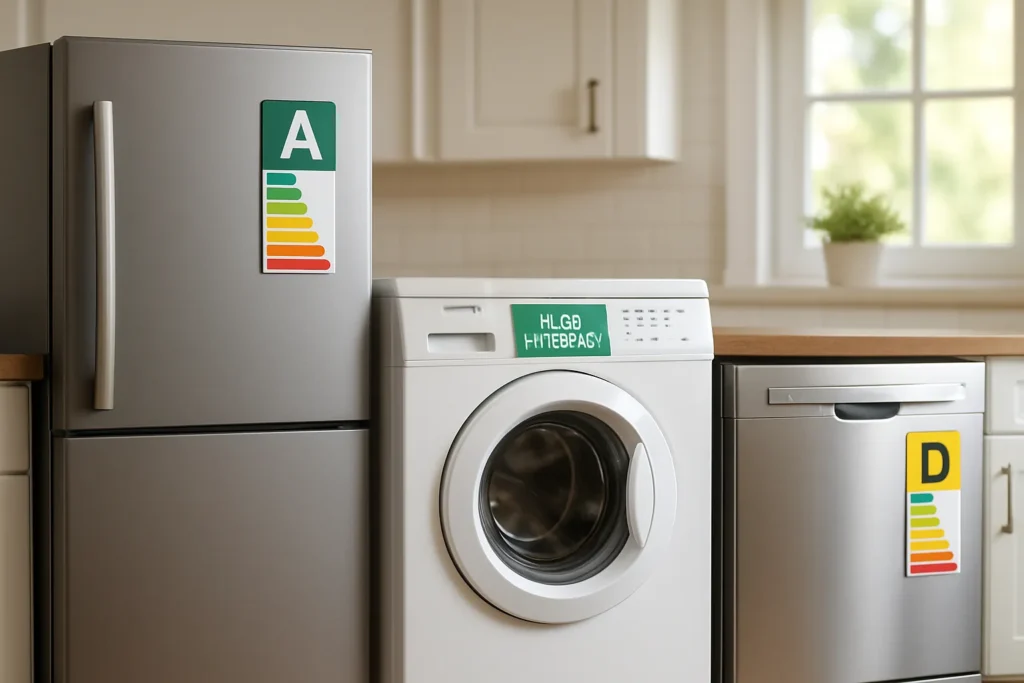Upending Progress: The Political War Over Your Appliances
Nothing shatters morning routine quite like waking to the hum of a refrigerator—now a battlefield in America’s political culture war. Last week, President Donald Trump signed into law a package of resolutions that wipes away key Biden-era energy efficiency standards on household and commercial appliances, including tankless water heaters, gas stoves, freezers, and refrigerators. In a move reminiscent of prior regulatory whiplash, these reversals—greenlit by Congress under the rarely used Congressional Review Act—usher in yet another turning point in the long-running fight over whether the government should regulate what happens in every American home.
The bills target regulations finalized in the final days of Biden’s term, rules designed to tighten energy use and reduce carbon emissions in millions of homes and businesses. The Department of Energy’s revised standards spanned everything from household water heaters to commercial refrigerators, with updated consumer product labeling requirements meant to empower buyers to choose more efficient, cost-saving models. Republicans in Congress, spearheaded by Rep. Craig Goldman of Texas, cast these rules as federal overreach—”interference with the market,” as Goldman put it, adding that such mandates drive up costs for both businesses and consumers.
The Cost of Repeal: Who Pays, Who Profits?
At the heart of this political drama is a basic but critical question: When it comes to energy, who should make the rules—government or the free market? White House staff secretary Will Scharff argued that Biden’s regulations were out of touch with ordinary Americans, emphasizing that “they hurt people in their own homes.” This framing—ordinary folks versus distant bureaucrats—has become a familiar refrain on the right, reinventing environmental policy as just another wedge issue.
Yet, a closer look reveals that the true consequences are not so black-and-white. The American Council for an Energy-Efficient Economy (ACEEE) has long documented how efficiency standards, while occasionally requiring higher upfront costs, routinely save consumers hundreds—sometimes thousands—of dollars over an appliance’s lifetime. Harvard economist Jane Doe notes that “rolling back federal efficiency rules often leads to higher household energy bills, disproportionately impacting low- and middle-income families.” By loosening standards, appliances may be cheaper on the shelf, but more expensive to run in the long haul.
Historical parallels abound. When President George W. Bush’s administration relaxed similar regulations in the early 2000s, initial cost savings for manufacturers didn’t trickle down to consumers—over time, outdated, less efficient appliances drove up national energy demand and household utility bills. A recent Pew Research study shows strong bipartisan support (nearly 70%) for government-mandated energy efficiency in home appliances—a fact rarely mentioned in the combative rhetoric from Capitol Hill.
“By loosening standards, appliances may be cheaper on the shelf, but more expensive to run in the long haul.” – Harvard economist Jane Doe
Behind the scenes, manufacturers themselves often prefer some regulatory certainty. Without clear federal guidelines, states can implement a patchwork of standards, creating untold headaches for compliance and increased costs passed on to—you guessed it—the consumer. Yet, the dominant political narrative coming from the Trump team and GOP allies is that deregulation equates to consumer freedom and job growth. But does the evidence support that claim?
Political Symbolism Versus Public Benefit
Beyond that, the rollback’s symbolic resonance may matter more to its proponents than the practical effects. Trump described the Biden-era rules as “lacking common sense” and blamed them for job losses—a refrain that echoes past Republican talking points from coal mines to car manufacturing. Yet independent analyses, like those from the Economic Policy Institute, have routinely found that energy efficiency regulations are net job creators, by stimulating demand in R&D, manufacturing, and installation. Instead of stifling growth, such standards often birth new industries—think of the rapidly expanding market for green Certified appliances, solar installation, and retrofitting work, all demanding American labor.
Why, then, the conservative insistence on deregulation, even as it conflicts with underlying economic benefits? Some of it’s philosophical: a conviction that government should do less, not more. But there’s also the influence of deep-pocketed industry groups, among them the fossil fuel lobby and appliance manufacturers who see short-term gains in looser standards. According to a 2023 report by the Center for Responsive Politics, industry PACs spent millions supporting Congressional Review Act resolutions targeting climate and efficiency rules—investments that pay dividends in deregulated profits, not public good.
All the while, climate science is clear: every gain in efficiency, no matter how incremental, chips away at carbon emissions and slows the worst impacts of global warming. Energy conservation isn’t just a technical tweak, but a critical lever in the fight for environmental justice. Black, Latino, and low-income communities—already bearing the brunt of pollution and high energy costs—stand to benefit most from bold, equitable standards. Rolling back these policies, then, sends a stark message: short-term politics over long-run sustainability and fairness.
Looking back, this isn’t the first time the Congressional Review Act has been wielded as a sledgehammer against late-stage regulations. And it won’t be the last, as Republican lawmakers tee up further reversals covering methane emissions and offshore environmental assessments. But for millions of Americans hoping their government will prioritize the planet and their pocketbooks, the lesson is clear: elections have consequences, and so too does the fine print behind your fridge.

